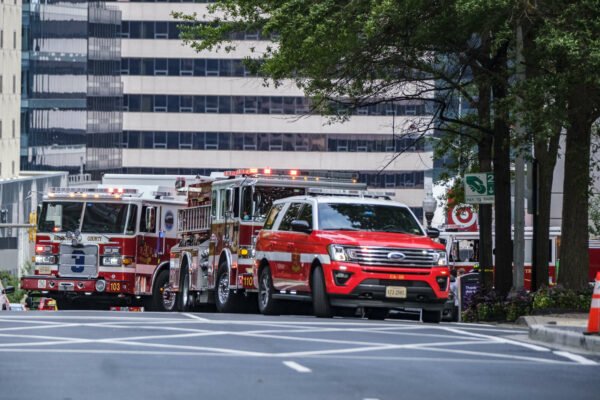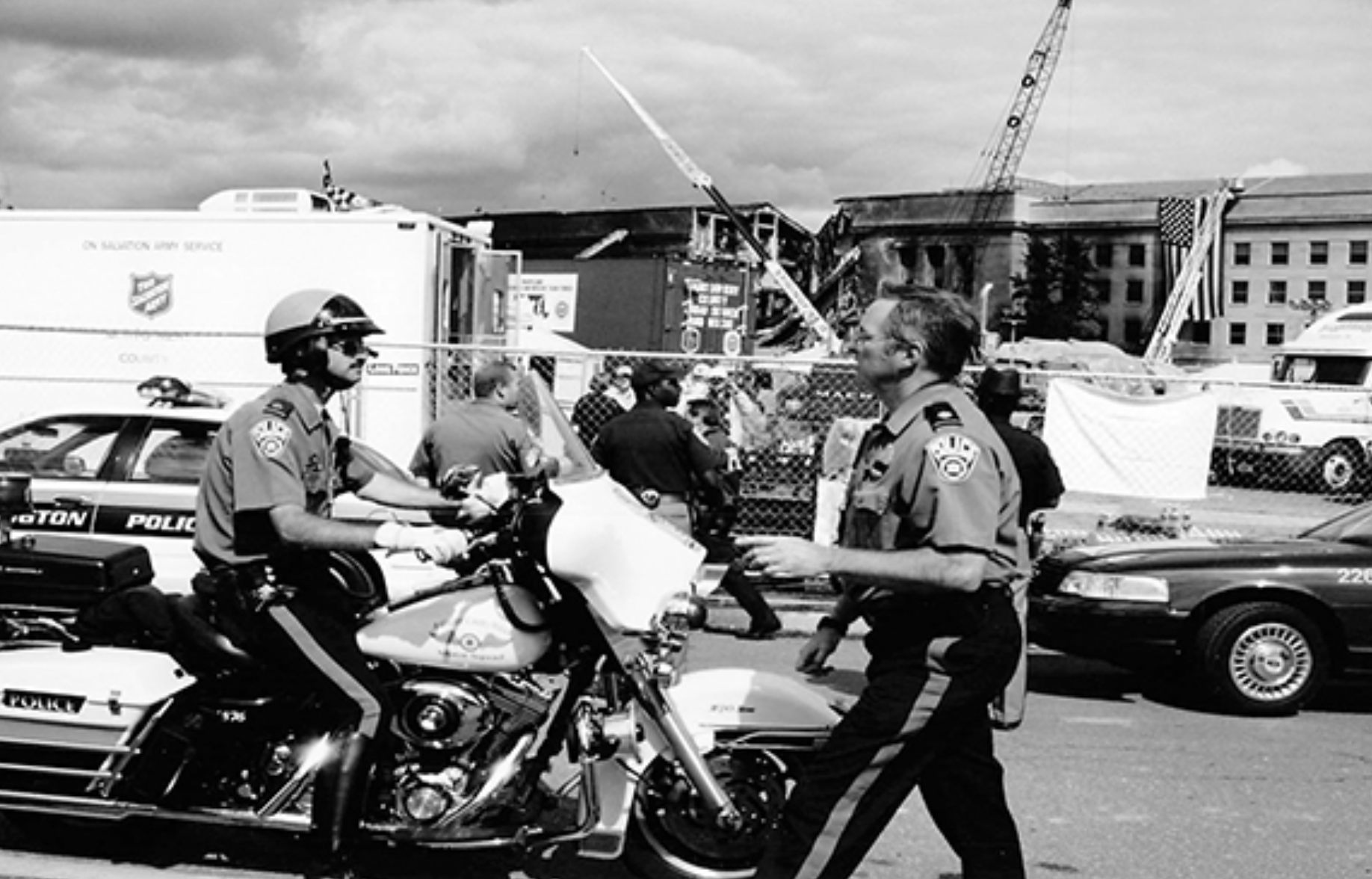
September 11th, 2001
On September 11, 2001 when America was under attack, Local 2800 members were the first firefighters to respond to the Pentagon. Together with thousands of other first responders, military and civilian personnel, they saved lives and preserved the operation of America’s global military headquarters during one of the significant national security events of our time.
In the weeks that followed, Local 2800 members worked a modified work schedule in which they worked additional shifts assisting the recovery and investigation mission at the Pentagon, in addition to their 24 hour shifts in fire stations protecting Arlington County.
Unfortunately, many 9/11 responders have suffered illnesses from their work, which in too many cases has resulted in disability and death. Together with our sisters and brothers in New York, and across the IAFF, Local 2800 has fought for permanent funding of the 9/11 Victim Compensation Fund and the World Trade Center Health Programs, which was ultimately achieved in 2019.
If you were at the Pentagon, World Trade Center or Shanksville sites on 9/11 or the days and months that followed, please follow the links below to get medical monitoring, healthcare and if needed compensation.
Resources
Victim's Compensation Fund
The September 11th Victim Compensation Fund (VCF) provides compensation to individuals (or a personal representative of a deceased individual) who were present at the World Trade Center or the surrounding New York City ("NYC") Exposure Zone; the Pentagon crash site; and the Shanksville, Pennsylvania crash site, at some point between September 11, 2001, and May 30, 2002, and who have since been diagnosed with a 9/11-related illness.
The VCF website has forms and resources including a step-by-step guide for claimants; information needed to register, file, and monitor the status of a claim. Members and retirees who were at the Pentagon and families can go here to make claims for losses related to 9/11 illnesses.
World Trade Center Health Program
The World Trade Center (WTC) Health Program provides medical monitoring and treatment of WTC-related health conditions for 9/11 responders and survivors.
Lawyers for firefighters and other victims of 9/11.
News Articles
-

The Pentagon’s 9/11 First Responders
-

Arlington Firefighters Reflect on Responding to Pentagon on 9/11
-

20 years later 9/11 memories still fresh for Pentagon first responders
-

For First Responders, 9/11 Struck Close to Home
-

'I saw body and plane parts everywhere' | Virginia firefighters recall horrors of September 11
FIREFIGHT: Inside the Battle to Save the Pentagon on 9/11
By Patrick Creed and Rick Newman
Amid all the stories of tragedy and heroism on September 11, there is one tale that has yet to be told -- the gripping account of ordinary men and women braving the inferno at the Pentagon to rescue friends and co-workers, save the nation's military headquarters, and defend their country.
Pentagon firefighters Alan Wallace and Mark Skipper had just learned the shocking news that planes had struck the World Trade Center when they saw something equally inconceivable: a twin-engine jetliner flying straight at them. It was American Airlines Flight 77, rushing toward its target. In his Pentagon office, Army major David King was planning a precautionary evacuation when the room suddenly erupted in flames. Arlington firefighters Derek Spector, Brian Roache, and Ron Christman, among the first responders at the scene, were stunned by the sight that met them: a huge flaming hole gouged into the Pentagon's side, a lawn strewn with smoking debris, and thousands of people, some badly injured, stumbling away from what would become one of the most daunting fires in American history.
For more than twenty-four hours, Arlington firefighters and other crews faced some of the most dangerous and unusual circumstances imaginable. The size and structure of the Pentagon itself presented unique challenges, compelling firefighters to devise ingenious tactics and make bold decisions -- until they finally extinguished the fire that would threaten to cripple America's military infrastructure just when it was needed most.



